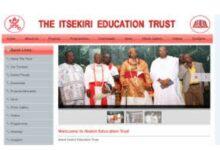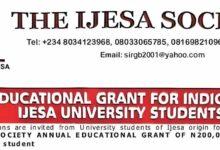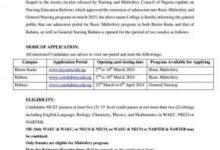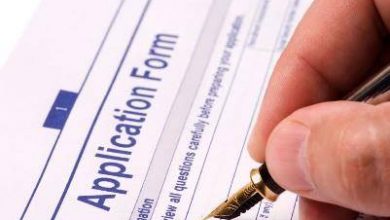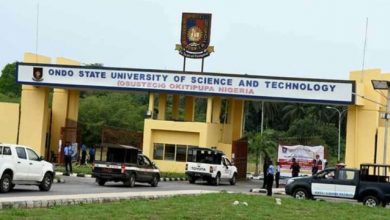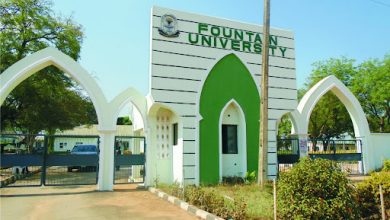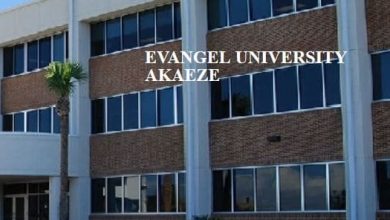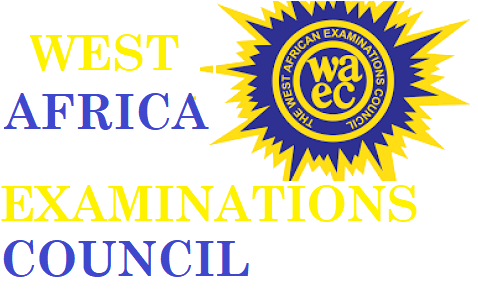
WAEC Syllabus for Ghanaian Languages
WAEC Syllabus for Ghanaian Languages. WAEC Syllabus for Ghanaian Languages is available for all candidates who want to participate in the examination. The West African examination council (WAEC) has officially introduced a syllabus that will guide all the WAEC candidates who wish to write the WAEC examination this year. For a very successful WAEC Ghanaian Languages examination for this year, you need to check out the available areas of concentration. It has been divided into sections with chapters, followed by the topics to be covered in preparation for the exams. In the WAEC Syllabus for Ghanaian Languages, you will also see the format of how the WAEC Ghanaian Languages questions will be presented. Jamb form
There are 2 sections to answer questions from. Paper 1 and paper 2.
👉 Relocate to Canada Today!
Live, Study and Work in Canada. No Payment is Required! Hurry Now click here to Apply >> Immigrate to CanadaThis WAEC syllabus is for both the O’level WAEC and General Certificate Examination (GCE) candidates. Final year students in the senior secondary school level and external candidates are eligible to make use of this syllabus and prepare ahead of the examination. WAEC Syllabus for Ghanaian Languages

See the full detailed information concerning the WAEC Ghanaian Languages Syllabus below.
PREAMBLE
The Ghanaian Language syllabus is based on the Teaching Syllabus which seeks to equip students with knowledge and skills to communicate effectively, appreciate cultures and values of the society and integrate smoothly into speech/language community. The syllabus is thus meant to examine candidates’ communicative competence and ability to appreciate their cultural environment for peaceful co-existence and national development.
AIMS
The syllabus is designed to encourage students to improve their reasoning skills, and improve their ability to contribute to the solution of the problems of a dynamic society. Aspects to be examined consist of Phonology, Reading Comprehension, Writing, Literature and Customs and Institutions of the various Ghanaian ethnic groups and their languages
ASSESSMENT OBJECTIVES
Language
Candidates will be tested on their ability to
(1) understand, arrange and present facts, ideas and opinions in a coherent manner.
👉 Relocate to Canada Today!
Live, Study and Work in Canada. No Payment is Required! Hurry Now click here to Apply >> Immigrate to Canada(2) evaluate information in reading material and select what is relevant to specific purposes.
(3) articulate, experience and express what is felt and what is imagined.
(4) recognize implicit meaning and attitudes. Naira to Pounds
(5) recognize the sound and structural patterns of the language.
Literature
Candidates will be tested on their ability to
(1) understand literary texts and have a deeper meaning of themes, characterization, and attitudes.
(2) recognize and appreciate ways in which authors/performers use language to achieve their effects (e.g. diction, syntax, imagery, plot, etc.)
(3) communicate a sensitive and personal response to what is read.
SCHEME OF EXAMINATION
There will be two papers: Papers 1 and 2, both of which must be taken.
PAPER 1: Language Skill Development (3 hours)
This paper will consist of four sections: A, B, C and D and will carry 120 marks.
SECTION A: Composition 40 (marks)
Four topics for composition will be set and candidates will berequired to write an essay of about 450 to 500 words on oneof them for 40 marks. The following types of writing will be tested: Jamb Result
Narrative
Descriptive (Instructions/Directions/Processes)
Argument Discussion Speech writing
Letter writing
Some of the topics could be selected from unit three of Year 4 of the Teaching syllabus.
Topics for this section may include what candidates have covered under Customs and Institutions and candidates’ essays will be expected to reflect the knowledge they have acquired in this area.
Candidates will be expected to display maturity in their use of language (e.g. figures of speech, choice of words, etc.) and their organization of facts and ideas.
SECTION B: Translation 20 (marks)
A prose passage of between 150 and 200 words will be set in English for translation into the chosen Ghanaian Language. Passages will be set to cover various registers and the types of writing will include:
Narrative, Descriptive, Explanation of ideas, Speeches,Directions, Instructions etc.
Some of the topics could be selected from unit three of Year 4 of the Teaching syllabus.
The section shall carry 20 marks.
SECTION C: Comprehension 20 (marks)
A prose passage or verse of about 300 to 350 words will be set.Ten questions will be set to cover the following areas: Content, Vocabulary/Idioms, Figures of speech, Shades ofmeaning, Inference, Extrapolation, Summary (Title/Main points, etc.) Dollar to Naira Rate
Candidates will be required to answer all the questions for 20 marks.
Passages for comprehension could be selected based on some of these topics recommended in unit three of Year 4 of the Teaching syllabus.
SECTION D: LANGUAGE
In this section, items will be set to cover phonology and syntax.
The section shall carry 40 marks.
N.B.
A detailed syllabus for Section D appears at the end of this syllabus.
PAPER 2 – (2½ hours)
This paper will consist of two sections: A and B Npower Recruitment
SECTION A: Oral Literature/Customs & Institutions 20 (marks)
Two questions will be set and candidates will be expected to answer only one of them for 20 marks. This section will test candidates’ knowledge of the following:
Marriage and divorce
Taboos and oaths
Naming, puberty and initiation rites
Chieftaincy and Traditional Administration
Traditional judicial procedure
Proverbs
Dirges
Riddles
Puzzles
Historical narratives Waec Result
Folktales
Lyrics
Lullabies
Libation texts
Drum/Xylophone/Horn texts
Occupational songs
War songs
Play songs
Candidates’ work at this level should show in-depth knowledge
and analysis of the various aspects of oral literature/customs and institutions.
SECTION B: Written Literature
This section will be divided into three parts: I, II and III.
Each part shall carry 20 marks.
Part I: Prose
One set book will be prescribed for detailed study for three years. Two questions will be set on the book and candidates will be required to study and answer one of the questions.
Part II: Drama
One set book will be prescribed for detailed study for three years. Two questions will be set on the book and candidates will be required to study and answer one of the questions.
Part III: Poetry
One set book will be prescribed for detailed study for three years. Two questions will be set on the book and candidates will be required to study and answer one of the questions.
NB:
This paper will test candidates’ knowledge of theme, incident, plot, context, characterization, appreciation, stylistic devices, etc.
DETAILED SYLLABUS FOR LANGUAGE
- Phonology
(a) Vowels – Length, Nasalization, Assimilation, Elision, Diphthongs/Vowel sequence/ Vowel Harmony
(b) Consonants – Assimilation, Mutation, Consonant gemination (where applicable);SecondaryArticulation e.g.Labialization, Palatalization
(c) Tone – Level, Carriers,Tonal Structure (Intonation),
Lexical and grammatical use of tones.
(d) Syllable – Types and Structure
II Syntax
(a) Sentences:
(i) Types
(ii) Functions
(iii) Structure
(b) Clauses:
(i) Types
(ii) Functions
(iii) Structure
(c) Phrases:
(i) Types
(ii) Functions
(iii) Structure
- Word Classes
(i) Nouns (vi) Conjunctions
(ii) Verbs (vii) Postposition
(iii) Adverbs (viii) Determiners
(iv) Adjectives (ix) Particles
(v) Pronouns (x) Auxilliaries
(b) Word Formation
(c) Direct/Indirect Speech
(d) Agreement (concord)
- ALLOCATION OF MARKS
PAPER 1
SECTION A – Essay – 40 marks
SECTION B – Translation – 20 marks
SECTION C – Comprehension – 20 marks
SECTION D – Language Structure 40 marks
(a) Phonology – 20120 marks
(b) Syntax – 20
PAPER 2
SECTION – Oral Literature/Customs & Institutions 20 marks
SECTION B – Written Literature/Literary Appreciation
Part I (Prose) – 20 marks
Part II (Drama) – 20 marks
Part III (Poetry) – 20 marks
80 marks
Total Paper 1 & 2 = 200 marks
Check and Confirm: How much is Dollar to Naira Today Pounds To Naira Rate Today
